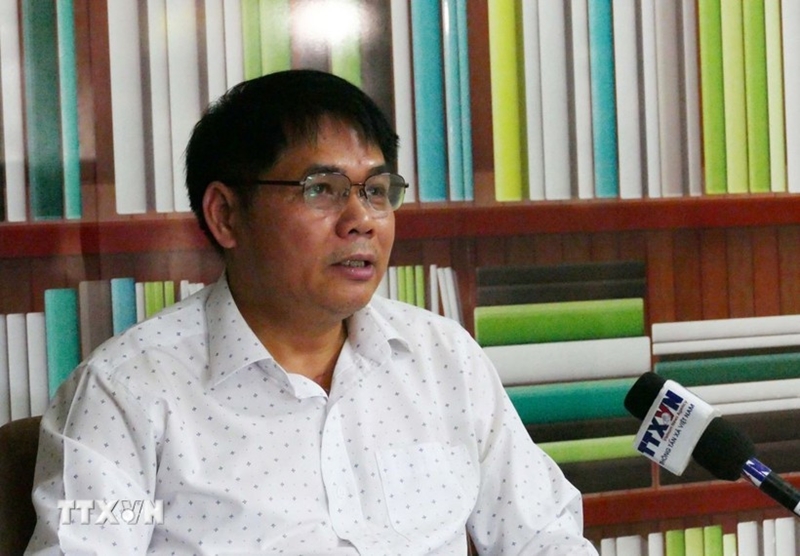The draft documents submitted to the upcoming congress reflect a strategic vision and strong determination to build an open, modern, and internationally integrated education system while preserving Vietnam’s cultural identity, Hoang Van Quan, Vice Chairman of the Vietnamese Business Association in Laos and Chairman and General Director of NNC Pharma, told Vietnam News Agency correspondents in Vientiane.
    |
 |
|
Hoang Van Quan, Vice Chairman of the Vietnamese Business Association in Laos and Chairman and General Director of NNC Pharma |
From a business perspective, Quan proposed further improving university autonomy mechanisms in parallel with enhanced accountability, and restructuring public institutions to ensure efficiency. He stressed the importance of digital transformation and the application of artificial intelligence (AI) in teaching, research, and management, identifying it as a strategic driver for enhancing the quality of higher education.
The businessman also highlighted the need to strengthen international cooperation, establish centers of excellence, and foster partnerships between universities and enterprises to boost competitiveness and meet the demand of the knowledge-based economy.
From an educator’s viewpoint, Nguyen Thi Thanh Huong, the principal of the Nguyen Du Lao-Vietnamese bilingual school, expressed her full agreement with the spirit of innovation and aspiration for national development reflected in the draft political report for the upcoming Party congress. She said that the Party’s orientation toward a modern, globally integrated education system is crucial for rapid and sustainable development, placing humans and knowledge at the core.
Huong hoped that the Party and State would continue to support and train Vietnamese language teachers abroad, helping them access modern teaching methodologies and strengthen bilingual education capacity. She stressed that education not only builds knowledge but also serves as a bridge of culture and people-to-people diplomacy, connecting OV communities with their homeland.
She further suggested that the draft should clarify digital transformation goals in education, encouraging the development of cross-border online learning platforms so that OV students can access domestic learning materials and accredited programs.
According to Huong, a standout feature of this draft is its breakthrough policy on science, technology, innovation, and national digital transformation. She noted it is a clear demonstration of the Party’s strategic vision in response to globalization and the Fourth Industrial Revolution.
The expatriates in Laos also underlined the need for comprehensive and breakthrough policies to further leverage the OV’s role and potential. They suggested expanding the network of Vietnamese schools and language classes abroad, increasing exchange programs, summer camps, and scholarships for young OVs to study and experience life in Vietnam, and establishing a network of intellectuals and entrepreneurs to contribute to technology transfer, research, and human resources development.
At the same time, they called for more open policies on investment, knowledge exchange, and recognition of the OV’s international qualifications and professional experience, as well as promoting digital transformation in community connectivity, moving toward building a digital platform for the group.
Source: VNA